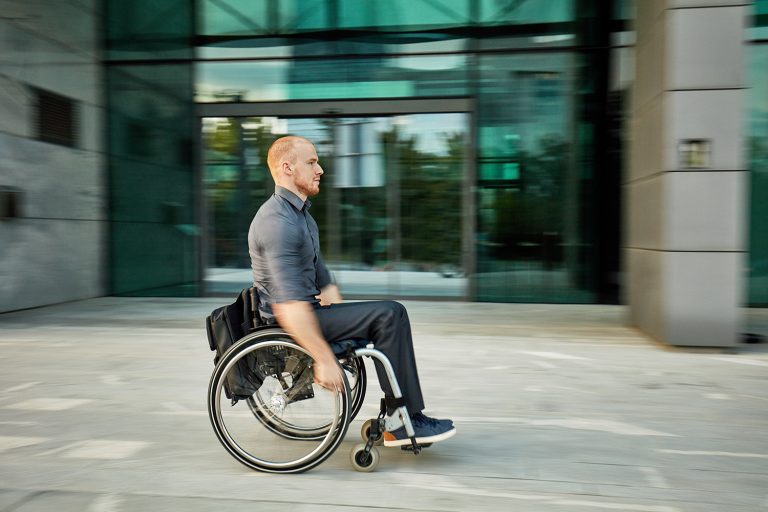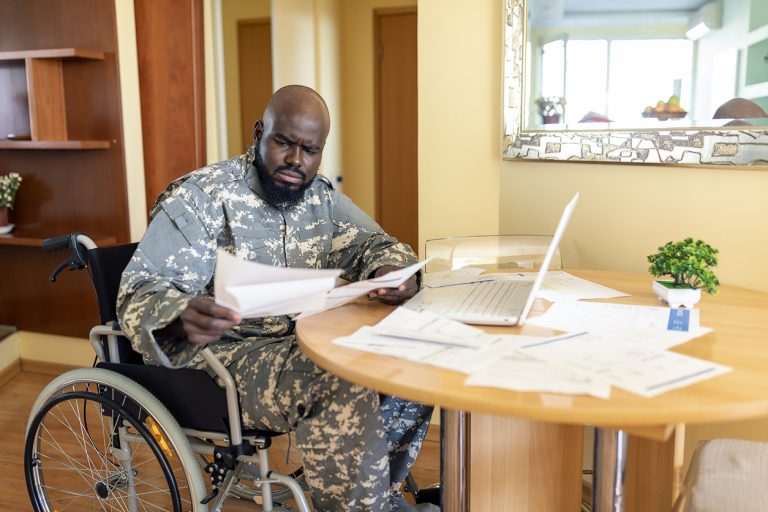How Do I Support My Loved One with Their New Diagnosis?
Receiving the news that a loved one has been diagnosed with a traumatic brain injury (TBI), spinal cord injury (SCI), cognitive disabilities, or any significant disability can be life altering for both the individual and those around them. The road ahead may seem uncertain and filled with challenges, and often, it’s difficult to know where to start in offering the right support. However, your presence, understanding, and actions can make a significant difference in their healing journey.
Supporting a loved one through a new diagnosis, especially one that alters their mobility, cognitive function, or overall well-being, requires patience, empathy, and flexibility. Here are some steps to help you provide the support they need while caring for your own emotional well-being.
1. Educate Yourself About the Diagnosis
The first step in providing support is understanding what your loved one is going through. Traumatic brain injuries, spinal cord injuries, and cognitive disabilities can vary greatly in severity, and each individual will experience different challenges. Learn about their specific diagnosis, potential complications, and the rehabilitation process. This knowledge will help you better anticipate their needs and engage with their medical team.
Understanding the medical aspects is important, but so is learning about the psychological impact of the diagnosis. Many individuals with a TBI, SCI, or cognitive disabilities experience emotional struggles such as depression, anxiety, and frustration. Recognizing that these feelings are part of the healing process can help you offer the emotional support they need.
2. Be a Good Listener
Sometimes the best way to support someone is to simply listen. Let your loved one express their emotions, fears, and hopes without offering solutions or trying to fix things right away. Acknowledge that what they’re experiencing is difficult, and avoid minimizing their feelings.
For individuals dealing with cognitive disabilities such as memory loss, confusion, or difficulty with concentration, it’s essential to offer extra patience. They may feel frustrated or disoriented by their new cognitive limitations. Your role is not to “cheer them up” in every moment but to validate their emotions. Creating a safe space where they feel heard and understood can help them process their new reality.
3. Be Patient with the Healing Process
Recovery from a traumatic brain injury, spinal cord injury, or cognitive impairment is rarely a linear process. There may be setbacks, moments of frustration, and periods of slow progress. It’s important to remain patient and understanding during this time. Setbacks can be particularly discouraging for someone trying to regain their independence or adapt to new limitations.
You can support them by celebrating small victories along the way no matter how insignificant they may seem. Help them stay focused on the progress, rather than only the challenges.
4. Help with Practical Needs
Depending on the severity of the injury or cognitive disability, your loved one may need help with daily tasks such as bathing, dressing, cooking, managing finances, or even remembering important dates or appointments. Be prepared to offer assistance in these areas, but also respect their autonomy and encourage independence where possible.
Individuals with cognitive disabilities may need extra help organizing their day, making decisions, or remembering tasks. Simple tools like reminder apps, to-do lists, or daily planners can be incredibly helpful. Encouraging them to use these tools to manage their schedule and responsibilities will foster a sense of independence while providing practical support.
5. Encourage a Positive but Realistic Mindset
Maintaining hope is vital for anyone going through a major life change. However, it’s important that your loved one also faces the reality of their diagnosis and recovery process. Encourage them to set realistic goals that are challenging yet achievable. It may be tempting to offer overly optimistic statements, but be mindful not to make promises that may not come true.
For those with cognitive disabilities, this means recognizing that certain cognitive functions may not fully return to what they once were. Helping them set goals that are aligned with their current capabilities is crucial. Focus on progress, however incremental, and encourage them to keep going even when the challenges seem overwhelming.
6. Involve Them in Decisions
A common experience for individuals with a disability—whether it’s from a traumatic injury or cognitive impairment—is a sense of loss of control. It’s crucial that your loved one is involved in decisions about their care, therapy, and daily routines. Ask for their input and respect their choices. This helps them retain a sense of agency in their life, which is essential for emotional well-being.
In the case of cognitive disabilities, involving them in decisions may look different. They may need additional support in understanding the full scope of their choices or may benefit from breaking down decisions into smaller, manageable steps. Providing this kind of assistance will empower them and foster a sense of control, even if it requires extra time and patience.
7. Take Care of Yourself
Supporting a loved one through a traumatic injury, cognitive disability, or significant change in their health can be emotionally and physically draining. Make sure you are caring for yourself as well. Take breaks when you need to, seek support from friends, family, or professional counselors, and engage in activities that help you recharge.
It’s important to remember that in order to be there for someone else, you must also tend to your own well-being. If you don’t, you risk burnout, which can ultimately affect your ability to provide effective support.
8. Seek Support for Yourself
Many caregivers experience emotional strain, isolation, and stress. Don’t hesitate to reach out to support groups or professional counselors. Connecting with others who are going through similar experiences can provide comfort and understanding.
Caregiver support groups for individuals with traumatic brain injuries, spinal cord injuries, or cognitive disabilities can offer valuable advice and coping strategies. The emotional toll of caring for a loved one with a significant medical condition is real, and finding an outlet to express your feelings and share experiences is key.
9. Look Beyond the Disability
It’s essential to remember that your loved one is still the person you know and love. They may have a new diagnosis, but they still have the same passions, desires, and interests. Encourage them to continue pursuing hobbies or activities they enjoy, as long as they are able, and find new ways to adapt these activities to their current abilities.
For individuals with cognitive disabilities, this might mean adjusting how they engage with certain activities—such as choosing a different form of creative expression or adopting new strategies for learning. By focusing on their identity beyond the injury or disability, you can help restore a sense of normalcy and show them that they are not defined by their condition.
Conclusion
Supporting a loved one through the life-changing experience of a traumatic brain injury, spinal cord injury, cognitive disability, or any other form of disability is not easy. It requires emotional strength, patience, and a willingness to adapt. While you may not have all the answers, your presence, empathy, and care can help your loved one navigate this difficult time. By staying informed, being patient, and providing practical and emotional support, you can help them face the challenges ahead with confidence and resilience.
As you both move forward, remember that the journey may be long, but with each step, you and your loved one can grow stronger together.

by Cody Waits
Communications and Training Director







